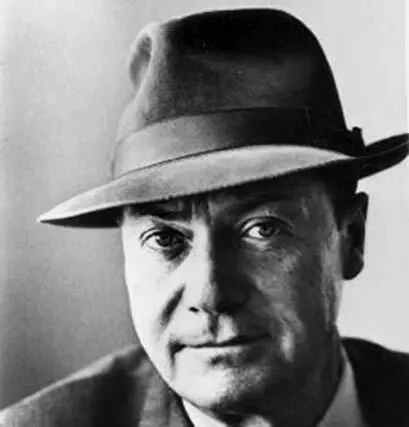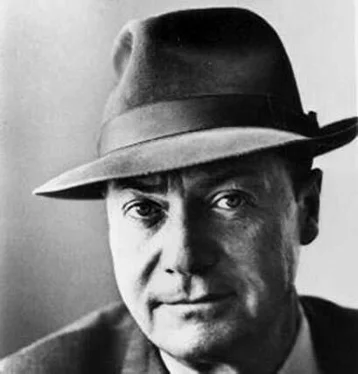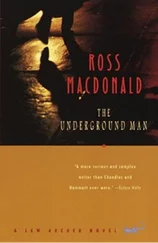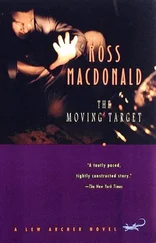Ross Macdonald
THE ARCHER FILES
The complete short stories of
Lew Archer, Private Investigator,
edited by Tom Nolan
2007

Ross Macdonald’s real name was Kenneth Millar. Born near San Francisco in 1915 and raised in Ontario, Millar returned to the U.S. as a young man and published his first novel in 1944. He served as the president of the Mystery Writers of America and was awarded their Grand Master Award as well as the British Crime Writers of Association Gold Dagger Award. He died in 1983.

Tom Nolan, editor of The Archer Files and author of the critically acclaimed and Edgar Award–nominated Ross Macdonald: A Biography , has reviewed crime fiction for The Wall Street Journal since 1990. He lives in Los Angeles.
Permission to quote material from The Kenneth Millar Papers, Special Collections and Archives, UC Irvine Libraries, has been granted by the University of California, Irvine.
ARCHER IN MEMORY
A Biographical Sketch by Tom Nolan
Possessed even when young of an endless backlog of stored information, most of it sad, on human nature, he tended once, unless I’m mistaken, to be a bit cynical. Now he is something much more, he is vulnerable. As a detective and as a man he takes the human situation with full seriousness. He cares. And good and evil both are real to him.
– Eudora Welty, 1971 [1] Eudora Welty, review of Ross Macdonald’s The Underground Man , New York Times , February 14, 1971; reprinted in The Eye of the Story: Selected Essays & Reviews (Vintage, 1990).
For all his goodwill and energy, there is a touch of sadness in his expression, as if there had been some trouble in his life, a fracture in his world which all his investigative efforts had failed to mend.
– Ross Macdonald, 1977 [2] Ross Macdonald, introduction to Lew Archer, Private Investigator (The Mysterious Press, 1977); reprinted in Self-Portrait: Ceaselessly Into the Past (Capra Press, 1981). Macdonald was writing about another private detective, but his words seem to apply as well to Archer.
“You must tell me the story of your life,” a woman he’d just met dared Los Angeles private-detective Lew Archer in 1964, when the L.A. investigator was nearing his personal half-century mark.
“I started out as a romantic,” Archer shot back, “and ended up as a realist.” [3] Ross Macdonald, Black Money (Knopf, 1966).
He was half-joking, but there was truth in that one-liner. Lew Archer, in the course of a thirty-year professional life, moved away from a Technicolor-vision of himself as a sort of Sunset Strip culture-hero, and into a life-sized portrait, in muted tones, of a much more ordinary man. As a person, though, he grew from a rather brash if self-deprecating wise-guy into a poetically observant and almost religiously empathic human being.
All our knowledge of Lew Archer’s personal history comes from the elegant and elaborately written detective stories of Ross Macdonald, the Santa Barbara, California, author who served as Archer’s authorial amanuensis from 1946 until 1977. Any life-account of Archer is necessarily based on revelations gleaned from these admittedly fictionalized dozen short stories, eighteen novels, and a few other fragments. Out of such scattered facts and hints, though, may be constructed a sort of impressionistic biographical sketch – one which, like a private-detective’s case notes, mixes a few verifiable truths with a fair number of plausible deductions.
—
Lewis A. Archer was born in Long Beach, California, on June 2, [4] Ross Macdonald, The Moving Target (Knopf, 1949).
probably in the year 1915.
One of his earliest memories was of holding his father’s hand and taking his first wading steps into the Pacific Ocean that he would love to swim in and look at all of his life. [5] Ross Macdonald, The Instant Enemy (Knopf, 1968).
By 1920, Lewis was attending grade school in Oakland, where a favorite treat was the fried-potato chips bought at a nearby lunchroom and eaten out of greasy newspaper wrappings. Cracking walnuts open was another happy childhood memory. And Lewis was fascinated by the stereopticon he found in his mother’s great-aunt’s attic, with the sepia-tinted glimpses it gave of a vanished Union Pacific world.
Except for that brief time in Oakland, young Lew was raised in Long Beach, within walking distance of the waterfront. He said little or nothing in later life about his parents – an indication perhaps of an influence too ordinary to mention, or more likely of memories too painful to reveal.
He was more forthcoming about two other relatives who helped form his personality. One was his uncle Jake, a prize-fighter “who once went fifteen rounds with Gunboat Smith, to no decision.” [6] Ross Macdonald, The Drowning Pool (Knopf, 1950).
A quarter-century after meeting him, Lew could no longer recall what Uncle Jake looked like, but: “I could remember the smell of him, compounded of bay rum, hair oil, strong clean masculine sweat and good tobacco, and the taste of the dark chocolate cigarettes he bought me the day my father took me to San Francisco for the first time.” Told as an adult that he fought well, Archer boasted: “I was taught by pros.” Uncle Jake was the first of several veteran battlers who’d instruct Lew in the finer points of how to slip a punch, stay on your toes, lead with your left, and throw a combination. But not every Archer saw the value of such training. “My mother never kept [Uncle Jake’s] pictures,” Lew remembered, “because she was ashamed to have a professional fighter in the family.”
Archer’s mother, a Catholic, took him instead to visit his grandmother: the other relative who became a formative figure to him. Very soft-spoken and highly religious, this woman lived in the picturesque old town of Martinez, in Contra Costa County, where she dressed in “crisp black funeral silks” [7] Ross Macdonald, The Way Some People Die (Knopf, 1951).
and displayed a piety which embraced both Roman dogma and native superstition (she read tea leaves). On her bedroom wall was a motto she herself had stitched, which reminded: “He is the Silent Listener at Every Conversation.”
Perhaps to please this woman, Lew had been named for Lew Wallace, the soldier-author of the greatly popular 1880 novel Ben-Hur: A Tale of the Christ . [8] Chuck Thegze, “Behind Lew Archer: Interview with Ross Macdonald,” Village Voice , February 10, 1975.
His grandmother, Archer later said, “had marked me for the priesthood, but I…slipped away under the fence.” [9] Ross Macdonald, The Blue Hammer (Knopf, 1976).
Nevertheless, the fear of God she instilled in the boy was the beginning of his moral life. His later accounts of Southern California crimes would flicker with Dante-esque glimmers of infernal depths, purgatorial slopes and hovering souls. Archer would learn no Latin in school, but he’d never forget the Latin words of his childhood prayers: Ora pro nobis – pray for us sinners, now and at the hour of our death.
Читать дальше














